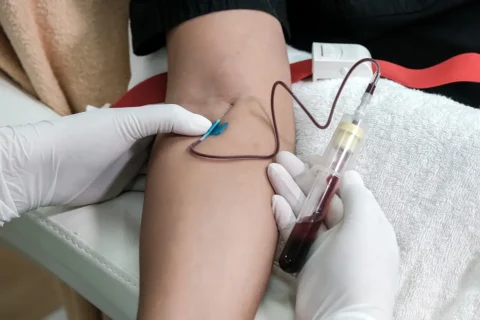Tirzepatide is an innovative medication meant to combat type two diabetes and obesity.
It’s a double glucagon-like peptide-1 (GLP-1) and glucose-dependent insulinotropic peptide (GIP) receptor agonist, implying that tirzepatide promotes the GLP-1 and GIP receptors in your body, leading to enhanced glycemic control and weight reduction.
This drug helps manage blood sugar levels and promotes weight loss.
Phase 3b Study Comparing Tirzepatide and Semaglutide
One key phase 3b clinical trial aims to assess the efficiency and safety of tirzepatide compared to another medication named semaglutide.
The study targets to evaluate tirzepatide’s effects on reducing body weight. Tirzepatide exhibited considerable weight shedding and glucose level discounts in early stage medical tests.
Promising Results from Early Clinical Trials
In early clinical trials tirzepatide showed encouraging outcomes in terms of lowering blood glucose and promoting weight loss. Phase 1 and Phase 2 medical tests indicated positive outcomes in terms of reducing HbA1c levels and body weight.
One clinical study, SURPASS-1, investigated the effects of tirzepatide on HbA1c reduction and body weight in patients with type 2 diabetes. The drug worked magically in early tests to curb sugar in patients’ blood and assist them lose weight.
Recent Approval and Therapeutic Potential
Tirzepatide has lately been accepted by the FDA under the brand name Mounjaro. This approval marks the start of a new era in diabetes and obesity treatment, offering a promising option for managing these conditions and their associated complications.
This drug has just been given a green light by the US FDA and is set to become a game changer for patients with diabetes and obesity by helping them better handle these health conditions.
Adverse events and side effects
In the trials, common side effects observed included diarrhea, nausea, vomiting, decreased appetite, and mild to moderate hypoglycemia. Some participants experienced dizziness, anxiety, and depression.
Like all medicines, this drug came with side effects for some patients such as upset stomach, nausea, low blood sugar, sleepiness and mood changes.
Effectiveness and safety profile
While tirzepatide showed promising results in reducing HbA1c levels and body weight, there were criticisms regarding its effectiveness compared to other treatments, and concerns about its safety profile.
Though the drug was mostly effective at lowering blood sugar and promoting weight loss, some folks questioned how well it worked compared to other options and worried about potential risks.
Future Trial Stages and Potential Applications

Lilly plans to complete the U.S. submission for tirzepatide in adults with obesity or overweight with weight-related comorbidities in the coming weeks, with regulatory action expected as early as late 2023.
The present trial, SURMOUNT-1, evaluated the efficacy and safety of tirzepatide in adults with obesity or overweight who did not have diabetes.
Detailed results from SURMOUNT-2, another phase 3 clinical trial, have been published, which evaluated tirzepatide for chronic weight management.
The drug company plans to officially apply for approval from the US health authorities within the next few weeks for people who are overweight or with obesity-related conditions like high blood pressure. A decision could come by the end of next year.
Earlier tests focused on determining how well the medicine worked and if it was safe for obese adults without diabetes. Another Phase 3 trial specifically studied how effective the drug was for long-term weight loss.
Tirzepatide could benefit metabolically healthy obese or overweight patients in reducing their risk of adverse cardiovascular outcomes and conversion to the metabolically unhealthy phenotype.
This medicine might help fatty but otherwise healthy people lower their chances of heart problems and other health issues down the road.
FAQ on Tirzepatide Trials
What doses of tirzepatide are being studied?
Tirzepatide is being studied in doses ranging from 5 mg to 15 mg once weekly. Phase 3 trials are evaluating the efficacy and safety of these different doses.
How does tirzepatide compare to other GLP-1 receptor agonists?
Tirzepatide is a dual GLP-1 and GIP receptor agonist, while most other GLP-1 receptor agonists only target the GLP-1 receptor. This gives tirzepatide an added benefit in promoting weight loss compared to single-target GLP-1 receptor agonists.
Does tirzepatide help reduce cardiovascular risk?
Preliminary results suggest that tirzepatide treatment results in reductions in body weight, blood pressure, and HbA1c, which are known to reduce cardiovascular risk. However, dedicated cardiovascular outcomes trials are needed to confirm any benefit of tirzepatide on reducing cardiovascular events.
What levels of weight loss has tirzepatide treatment achieved?
In phase 3 trials, participants taking the highest dose of 15 mg tirzepatide achieved an average of 15% reduction in body weight from baseline. Some participants achieved reductions in body weight of 20% or more. However, not all participants experienced these levels of weight loss.
What is the treatment difference seen with tirzepatide?
In trials comparing tirzepatide to placebo or an active comparator like semaglutide, significantly greater reductions in body weight, HbA1c, and fasting glucose were seen with tirzepatide treatment, especially at higher doses. The treatment difference increased with higher doses of tirzepatide.
Conclusion
Tirzepatide shows great promise as a dual-targeted treatment for diabetes and obesity due to its efficacy in reducing glycemic levels, improving insulin sensitivity, and promoting weight loss.
Tirzepatide has recently been approved, offering a new therapeutic option for patients with diabetes and obesity. However, further investigation and analysis are needed to fully understand the controversies and issues surrounding tirzepatide trials. But more research is needed to understand all the concerns and criticism related to the drug tests.
The next steps involve further evaluating tirzepatide in different populations, like those with obesity, overweight and related conditions. Its potential extends beyond diabetes to include chronic weight management and reducing cardiovascular risk.






